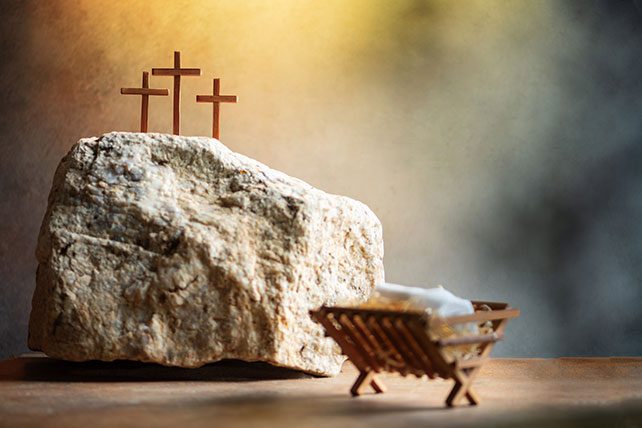Christian holidays offer a deep reflection of faith, culture, and history, with Christmas and Easter standing as the pillars of Christian observance. These festivals are not only celebrations but also profound expressions of the Christian narrative, encapsulating key doctrines and events that define the religion. Together, these holidays offer rich insights into Christian beliefs and the enduring power of these ancient narratives.
Christmas and Easter: Significant Celebrations of Christianity
Christmas marks the birth of Christ, celebrating the incarnation and the beginning of mankind’s redemption. Easter, on the other hand, commemorates the resurrection of Jesus Christ, a cornerstone of Christian faith symbolizing victory over death and the promise of eternal life.
The Season of Advent and Christmas
Advent marks the beginning of the Christian liturgical year, encompassing the four weeks leading up to Christmas. It is a time of preparation, anticipation, and reflection, inviting believers to await Christ’s birth and return. Christmas itself is a festive celebration of Jesus’ birth (Luke 2), bringing messages of love, hope, and salvation. Traditional symbols like the Nativity scene, Advent wreaths, and candles play significant roles in this season, each carrying layers of theological significance.
Christmas Traditions and Their Origins
Christmas is enveloped in various customs and traditions, from decorating Christmas trees to singing carols and exchanging gifts. Many of these practices have roots in Christian symbolism and history, such as the Christmas tree representing eternal life and the Nativity scene depicting Jesus’ humble birth. The transformation of St. Nicholas into Santa Claus illustrates the blend of religious and cultural narratives that shape the holiday’s modern celebration.
Lenten Practices and Easter Celebrations
Lent, the forty-day period leading up to Easter, is a time of penance, reflection, and fasting, mirroring Jesus’ forty days in the desert. It prepares believers for the joy of Easter through self-examination and renewal. Easter itself is celebrated with various customs worldwide, from sunrise services symbolizing the new light of the Resurrection to the gifting of Easter eggs representing new life.
RELATED: What Is Lent? A Season of Reflection, Fasting, and Preparation
Traditions and Observances of Holy Week
Holy Week, leading up to Easter, is filled with significant rituals and ceremonies reflecting Jesus Christ’s final days. Palm Sunday initiates the week with the reenactment of Christ’s triumphant entry into Jerusalem (Matthew 21). Maundy Thursday commemorates the Last Supper and Jesus’ commandment of love and service, often observed with foot-washing ceremonies. Good Friday is a solemn day reflecting on Jesus’ crucifixion and death. The week culminates in Easter Sunday, celebrating His resurrection and the promise it holds for humanity.
The Significance of Easter
Easter lies at the heart of Christian theology, embodying the profound mysteries of death and resurrection. It marks the culmination of the Passion of Christ, chronicled through His betrayal, crucifixion, and triumphant resurrection. This season reflects on themes of sacrifice, atonement, and the hope of new life, serving as a central anchor of Christian faith and worship.

